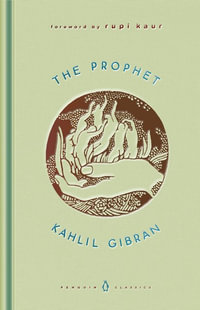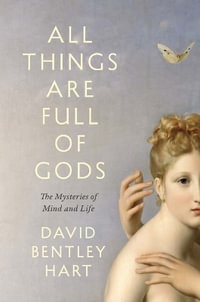This book is, along with Outward Signs (OUP 2008), a sequel to Phillip Cary's Augustine and the Invention of the Inner Self (OUP 2000). In this work, Cary traces the development of Augustine's epochal doctrine of grace, arguing that it does not represent a rejection of Platonism in favor of a more purely Christian point of view a turning from Plato to Paul, as it is often portrayed. Instead, Augustine reads Paul and other Biblical texts in light of his Christian Platonist inwardness, producing a new concept of grace as an essentially inward gift. For Augustine, grace is needed first of all to heal the mind so it may see God, but then also to help the will turn away from lower goods to love God as its eternal Good. Eventually, over the course of Augustine's career, the scope of the soul's need for grace expands outward to include not only the inner vision of the intellect and the power of love but even the initial gift of faith.
At every stage, Augustine insists that divine grace does not compromise or coerce the human will but frees, heals, and helps it, precisely because grace is not an external force but an inner gift of delight leading to true happiness. As his polemic against the Pelagians develops, however, he does attribute more to grace and less to the power of free will. In the end, it is God's choice which makes the ultimate difference between the saved and the damned, and we cannot know why he chooses to save one person and not another. From this Augustinian doctrine of divine choice or election stem the characteristic pastoral problems of predestination, especially in Protestantism. A more external, indeed Jewish, doctrine of election would be more Biblical, Cary suggests, and would result in a less anxious experience of grace.
Along with its companion work, Outward Signs, this careful and insightful book breaks new ground in the study of Augustine's theology of grace and sacraments.
Industry Reviews
"Phillip Cary's Inner Grace and Outward Signs together constitute a fascinating account of how Augustine's Platonism shaped his account of grace, of faith, of language, of sacraments DL indeed, of almost everything he ever wrote about. Cary's discussion was full of surprises for me; the Augustine that emerges is much more strange and much more creative than the Augustine I thought I knew. Many readers won't like this new Augustine; Cary's
treatment will be controversial. But it is so remarkably original and so thoroughly documented that no Augustine scholar will be able to ignore it." --Nicholas Wolterstorff, Noah Porter Professor Emeritus of Philosophical
Theology, Yale University; Senior Fellow, Institute for Advanced Studies in Culture, University of Virginia
"Philip Cary's new books, Inner Grace and Outward Signs, are major contributions to scholarship on Augustine. They are also controversial ones, since the upshot of one of his central arguments is that Augustine not only doesn't but can't have any genuine sacramental theology because on his assumptions there can be no intimate and transformative causal connection between material objects and inner states. Cary supports this argument with
learning, wit, and intellectual passion. It deserves what it will undoubtedly receive, which is much lively discussion." --Paul J. Griffiths, Duke Divinity School
"Cary's study of the Platonic and Pauline roots of the Augustinian theology of grace has expertly clarified Augustine's thinking on grace and has deftly disentangled the rather convoluted movement of its development. Contrary to many Augustine scholars, Cary rightly emphasizes the continued influence of Platonism on Augustine's theology. He offers his readers a thoughtful analysis of where Augustine's doctrine of election went wrong and suggests ways in which
various forms of Western and Eastern Christianity have presented corrections to certain factors in Augustine's theology of grace. Cary offers us a fresh, fascinating, and challenging reading of
Augustine's later thought." --Roland Teske, Donald J. Schuenke Professor of Philosophy, Marquette University
"These two handsome volumes by Phillip Cary complete a trilogy on Augustine's theology...Altogether the trilogy constitutes an energetic and challenging interpretation of Augustinian theology." --Journal of Religion









![NKJV Holy Bible Soft Touch Edition [Brown] : Holy Bible, New King James Version - Thomas Nelson](https://www.booktopia.com.au/covers/200/9780785219460/5157/nkjv-holy-bible-soft-touch-edition-brown-.jpg)















